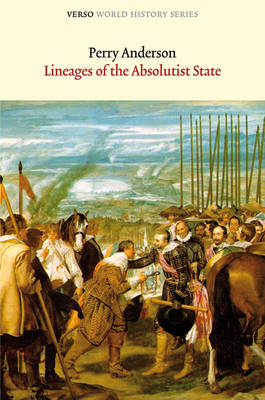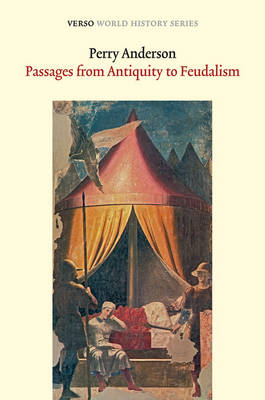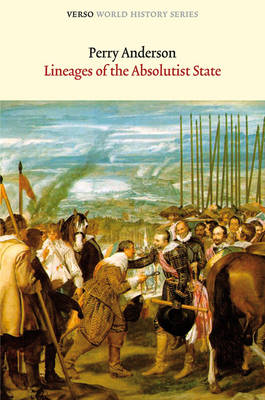Verso World History
3 total works
Lineages of the Absolutist State (Verso World History Series)
by Perry Anderson
Published 10 May 2014
The rise of the modern absolutist monarchies in Europe constitutes in many ways the birth of the modern historical epoch. "Passages from Antiquity to Feudalism," the companion volume to Perry Anderson's highly acclaimed and influential "Lineages of the Absolutist State," is a sustained exercise in historical sociology to root the development of absolutism in the diverse routes taken from the slave-based societies of Ancient Greece and Rome to fully-fledged feudalism. In the course of this study Anderson vindicates and refines the explanatory power of a Marxist conception of history, whilst casting a fascinating light on Greece, Rome, the Germanic invasion, nomadic society, and the different patterns of the evolution of feudalism in Northern, Mediterranean, Eastern and Western Europe.
The political nature of Absolutism has long been a subject of controversy within historical materialism. Developing considerations advanced in Passages from Antiquity to Feudalism, this book situates the Absolutist states of the early modern epoch against the prior background of European feudalism. It is divided into two parts. The first discusses the overall structures of Absolutism as a state-system in Western Europe, from the Renaissance onwards. It then looks in turn at the trajectory of each of the specific Absolutist states in the dominant countries of the West-Spain, France, England and Sweden, set off against the case of Italy, where no major indigenous Absolutism developed.The second part of the work sketches a comparative prospect of Absolutism in Eastern Europe. The peculiarities, as well as affinities, of Eastern Absolutism as a distinct type of royal state, are examined. The variegated monarchies of Prussia, Austria and Russia are surveyed, and the lessons asked of the counter-example of Poland. Finally, the structure of the Ottoman Empire in the Balkans is taken as an external gauge by which the singularity of Absolutism as a European phenomenon is assessed. The work ends with some observations on the special position occupied by European development within universal history, which draws themes from both Passages from Antiquity to Feudalism and Lineages of the Absolutist State together into a single argument-within their common limits-as materials for debate.


